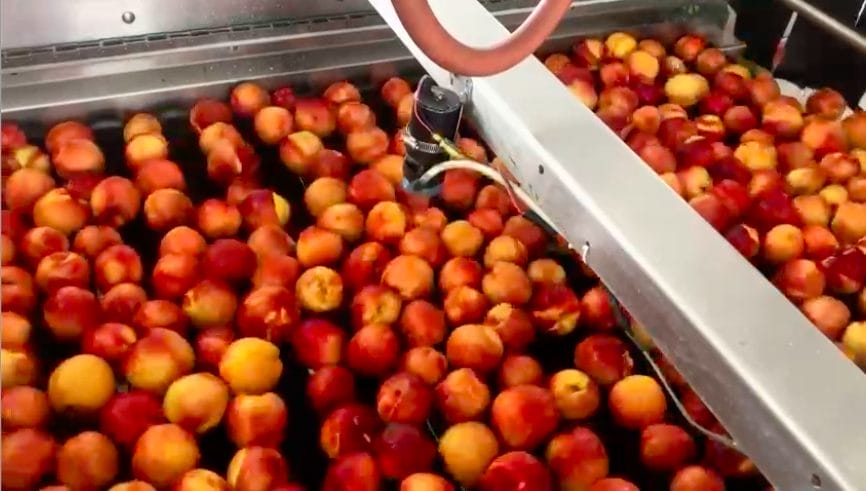Preparing for the Future of Edible Fruit and Vegetable Coatings: Challenges, Implications, and Akorn Technology’s Role
The edible coatings industry is at a pivotal juncture, influenced by shifting market dynamics, growing consumer demands for transparency and sustainability, and regulatory pressures. Current coating solutions often provide only rudimentary benefits, although there is unquestionably potential to solve a much broader range of problems that directly impact producers’ bottomlines. Recent controversies and developments in this sector, such as those involving Apeel Sciences and its products, have highlighted some of the critical challenges and opportunities facing companies in the agricultural technology space. Here, we explore the implications of these developments for the industry, the importance of building consumer trust, and how Akorn Technology is positioning itself as a leader in sustainable agricultural solutions.
Market Dynamics and Regulatory Pressures
The global fresh produce market is expanding rapidly, driven by increasing consumer demand for year-round availability of high-quality fruits and vegetables and has reached nearly $200 billion. Countries such as China and India, with their large populations and expanding middle classes, are becoming major consumers in the global fresh fruit market. This shift is leading packers and exporters to reach distant markets and must ensure their fresh produce is shipped properly across continents to arrive in excellent condition. To meet this demand, fresh produce exporters use various transportation methods. While air freight is essential for up to a quarter of global shipments due to its speed, ocean shipping remains the preferred mode for long-distance transport. Ocean shipping allows for cost optimization, a lower environmental footprint, and the ability to handle larger volumes. However, disruptions like COVID and the Suez Canal blockage led to higher shipping costs, delays, and unpredictable delivery schedules, particularly affecting producers of perishable goods like fruits and vegetables.
In addition, the global fresh produce market faces several regulatory challenges that affect market access, distribution, and trade compliance. For example, different markets have their own pesticide regulations and Maximum Residue Limits (MRLs). Exporters must ensure that their products comply with these standards, which can vary significantly between markets, leading to delays or rejections at customs if compliance is not met. Other regulatory challenges include phytosanitary standards which require rigorous documentation to certify that fresh produce is free of pests and diseases. These regulatory challenges, though necessary to ensure food safety and environmental sustainability, add complexity and cost to the global fresh produce trade.
Sustainability and Consumer Trust
Sustainability is becoming increasingly central to the industry’s future. Companies are developing innovative solutions that not only extend produce shelf life but also reduce food waste and environmental impact. This trend is likely to accelerate as consumers and retailers alike prioritize eco-friendly options. The industry is also shifting towards greater transparency and consumer engagement.
Increasingly, consumers demand clear labeling and full disclosure of product contents, particularly in products labeled as natural. This includes both the fresh produce and any treatments or coatings may have been applied. The discovery that Apeel’s products, marketed as natural, contained mono- and diglycerides—common in processed foods but unexpected in fresh produce coatings—sparked significant consumer backlash. A significant percentage of consumers in the U.S., U.K., and Germany have changed their shopping behavior due to environmental concerns and the EU is cracking down on greenwashing with penalties for companies that engage in misleading environmental claims. Retailers are supporting the EU’s goal of reducing food waste from harvest through disposal, indicating a need for clear labeling and transparency in the food industry as well.
Akorn Technology’s Strategic Position
In response to these industry challenges, Akorn Technology has developed products which are both natural and highly effective, often superior to other products. Akorn’s coatings are made entirely from natural ingredients, ensuring they meet the global demand for clean-label solutions and also align with consumer expectations for safety and environmental sustainability. Akorn is taking proactive steps to ensure its products comply with the strictest regulatory standards.
Akorn’s innovative approach also extends to its product development and market strategy. The company’s forthcoming natural fungicide product represents a direct response to the industry’s shift away from synthetic chemicals. By focusing on easy-to-integrate, plug-and-play solutions, Akorn is making it simpler for producers to adopt sustainable practices without disrupting their existing operations. We have the only coating with three natural active ingredients which help us deliver several key benefits including reducing ripening speed, delaying color development and minimizing water loss, while many other products have one active ingredient that only delivers weight loss reduction and shine which don’t address the challenges many packers face.
Conclusion
The evolving landscape of the edible coatings market presents numerous challenges but also significant opportunities for innovation and growth. The companies that succeed will be those that can innovate rapidly, adapt to changing consumer needs, and contribute to a more sustainable and efficient global food supply chain. Akorn Technology’s key to success lies in continually innovating to provide sustainable and effective solutions and fostering transparency and trust with consumers, while staying ahead of regulatory trends. By prioritizing these elements, Akorn not only positions itself as a leader in the ag-tech industry but also contributes to a more sustainable and transparent global food supply chain.

